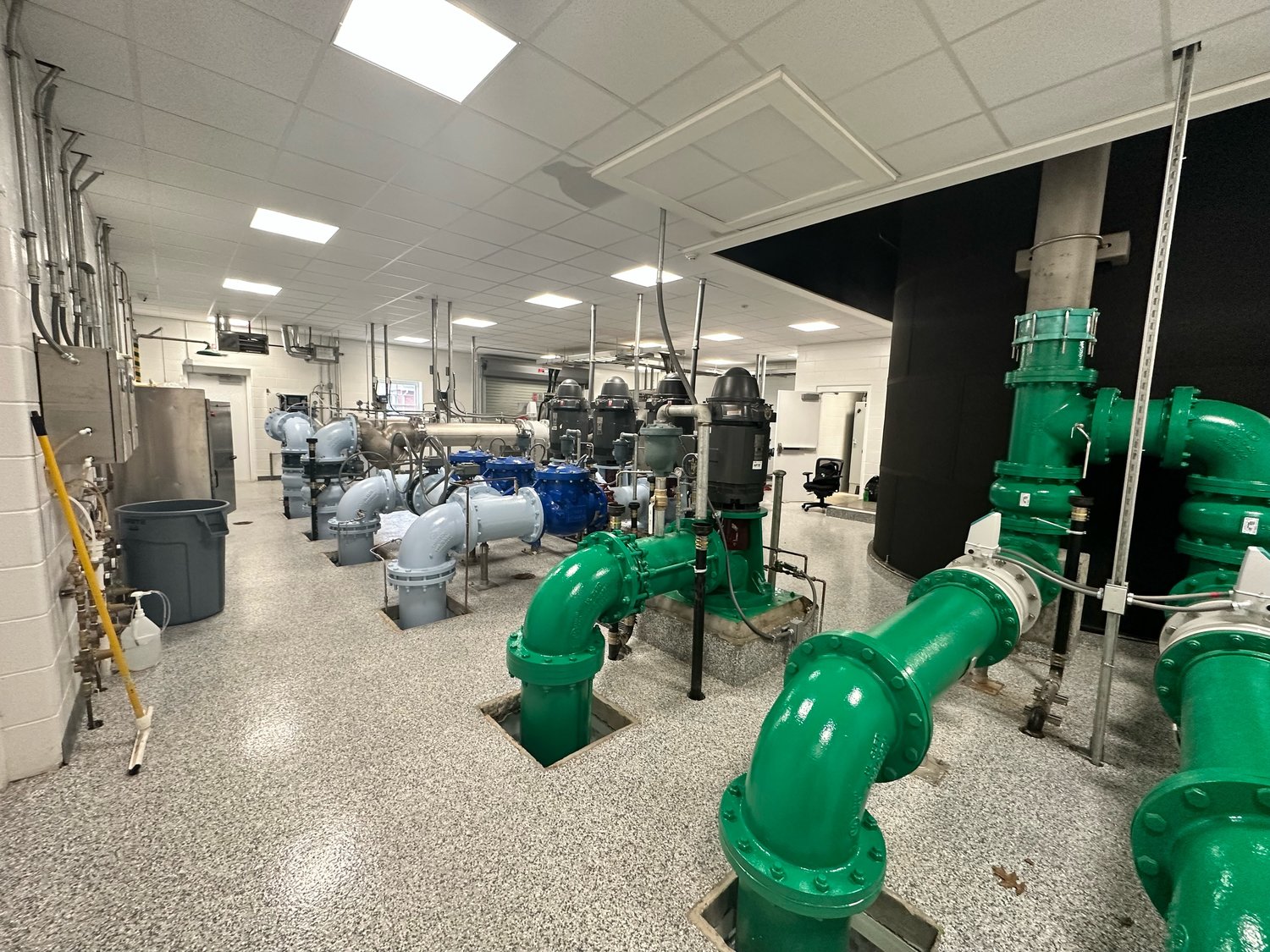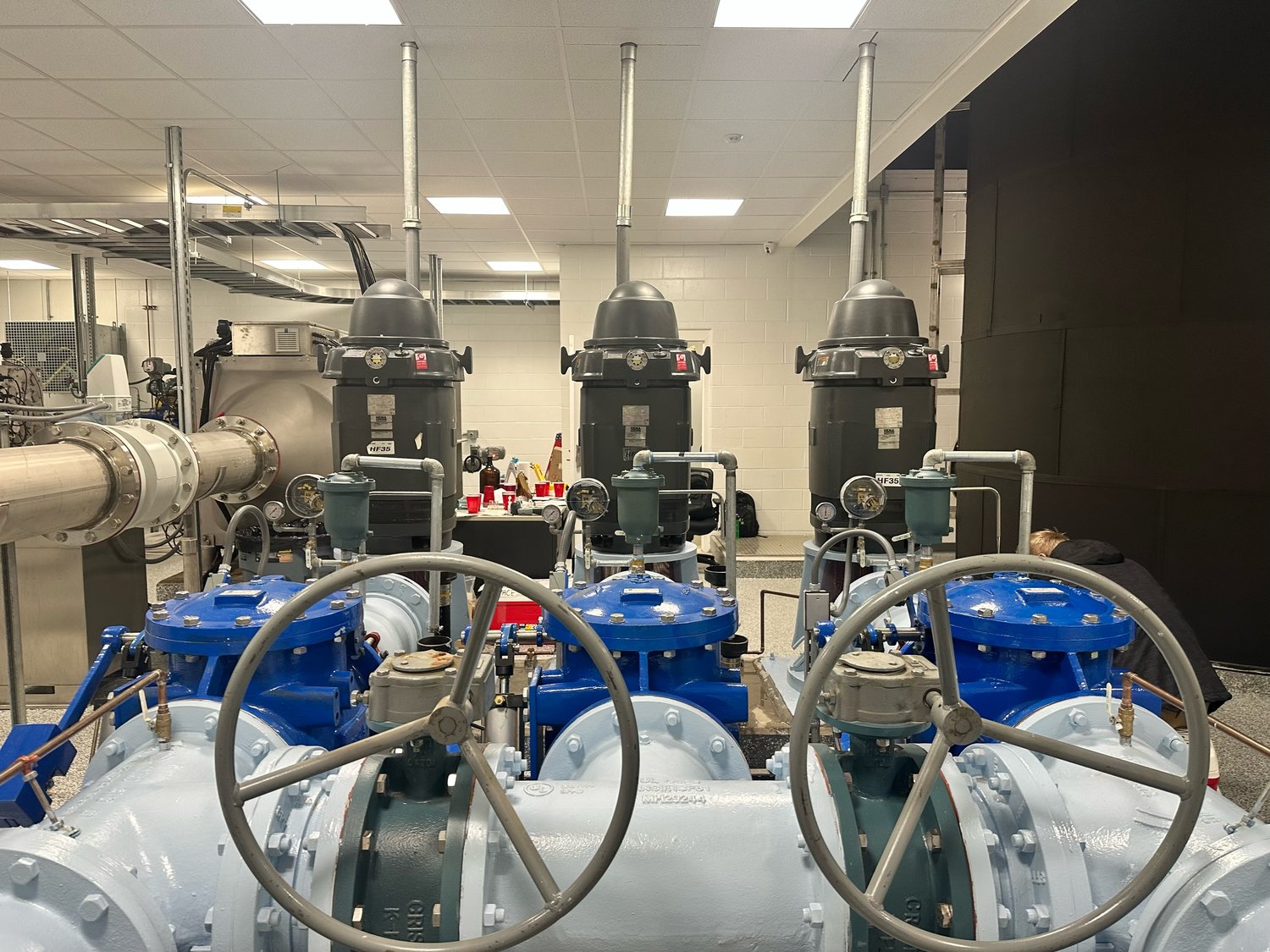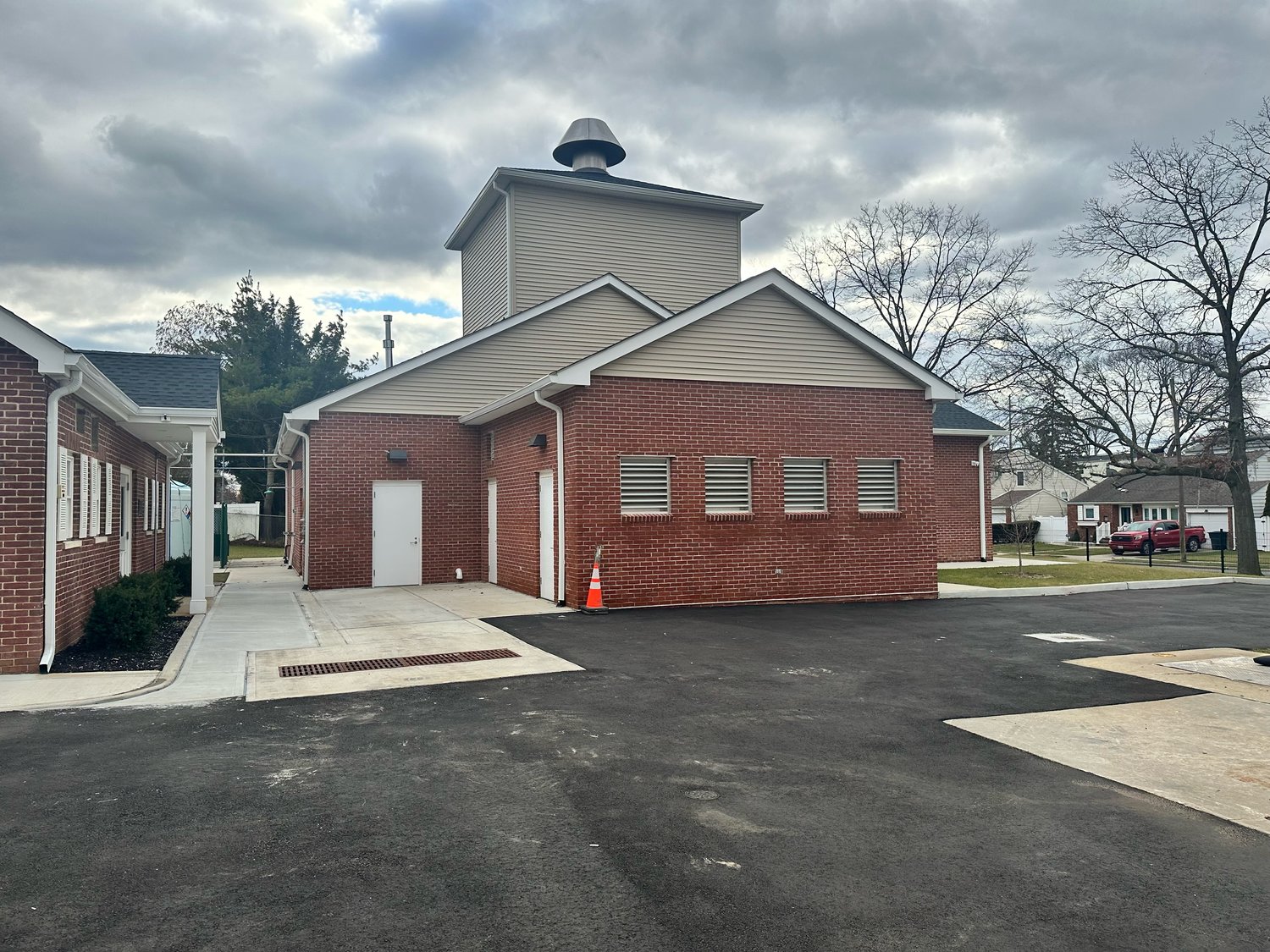What Franklin Square water district customers can expect from the quality update this spring
How safe is your drinking water? Those who depend on the Franklin Square Water District will find out when officials send out a report this coming May.
The district is still compiling and analyzing data collected in the past year, which it will then send out to 20,000 people living in parts of Stewart Manor, Elmont and Franklin Square. Customers there depend on 41 miles of water main, five supply wells and two elevated storage tanks.
And it’s expected to be a good report, water district superintendent John Hughes said. The district has implemented several preventive measures and new technologies to combat emerging contaminants — most notably dioxane, a well as perfluorooctanoic acid and perfluorooctane sulfonate — collectively known as PFAS.
“It goes down the sewer drains and all of the housing drains, and then it just eventually makes its way into the groundwater,” Hughes said. “The older generations — our parents — what they dumped down into the ground, oils and different pesticides, unfortunately now that’s what we’re pulling up out of the ground. And we have to combat that with filtration.”
The district detected a slight trace of dioxane in one of its Theodora Street Plant wells in 2021, Hughes said. However, the detection did not go over the maximum contaminant limit — or MCL — set forth by the state health department. This is the highest level of a chemical allowed in the drinking water.
Once the district reported a detection, the state granted funding to correct it through filtration, Hughes said. The $4.12 million New York State Water Infrastructure Act Grant allowed for a new wellhead treatment system to be built at Theodora Street.
The district also asked the state for a deferral during construction that would allow it to continue to supplying drinking water. The state approved it since the dioxane contamination was still within limits deemed safe for use.
But that didn’t mean the state treated the issue as out of sight, out of mind, Hughes said. Instead, the deferral held off any enforcement actions from Albany, so long as the water district meets the established deadlines. The dioxane deferral ended Dec. 31, with the district never going over any of the safety limits.
“If we did go above the level, we would have had to notify the public that we are above the limit, we know about it, but we’re working with the department,” Hughes said. “I was told early on by my board members that even if we went above the limit from one of our wells, we would have stopped use of that well immediately and not pump that water to the public. But it was a safety precaution.”
One of three water treatment types used at Theodora Street to combat dioxane is an advanced oxidation process — known to engineers as AOP. This cutting-edge technology is used in approximately 80 water treatment plants worldwide today — half of which are on Long Island alone.
Dioxane is not easy to remove from water using typical filtration methods, so the advanced oxidation process combines ultraviolet lights and hydrogen peroxide to treat the water in real time.
Well No. 5 at the Theodora Street plant is now fully operational with advanced oxidation treatment currently treating dioxane to non-detectable levels, Hughes said. Work continues on getting Well No. 4 operational again with this same treatment, district engineer Andrew Manfredi told those attending a civic meeting last month.
The district also received an additional $3 million grant to offset the costs of the proposed PFAS treatment at the Schroeter Avenue plant — work that is still in the preliminary planning stages, Hughes said. However, construction could begin at Schroeter Avenue later this year.
“New York state probably has some of the highest and strictest standards in the country for water,” Manfredi said. “The Franklin Square Water District does everything possible to ensure it stays that way.”
Water treatment continues with the West Hempstead Water District as well, according to its representative, James Neri. This particular district encompasses not only West Hempstead, but also portions of Cathedral Gardens, Franklin Square, and Garden City South.
One significant accomplishment for West Hempstead was getting the permanent advanced oxidation process system up and running at the Seventh Street facility, Neri said. In addition, there are two well replacements coming up, which is a routine maintenance upgrade for the water district. Both should be completed before summer.
“We’re looking to be quiet this year,” Neri said, “and just do what we need to do to provide for the community with water for the summer pumping season.”

 56.0°,
Overcast
56.0°,
Overcast 









